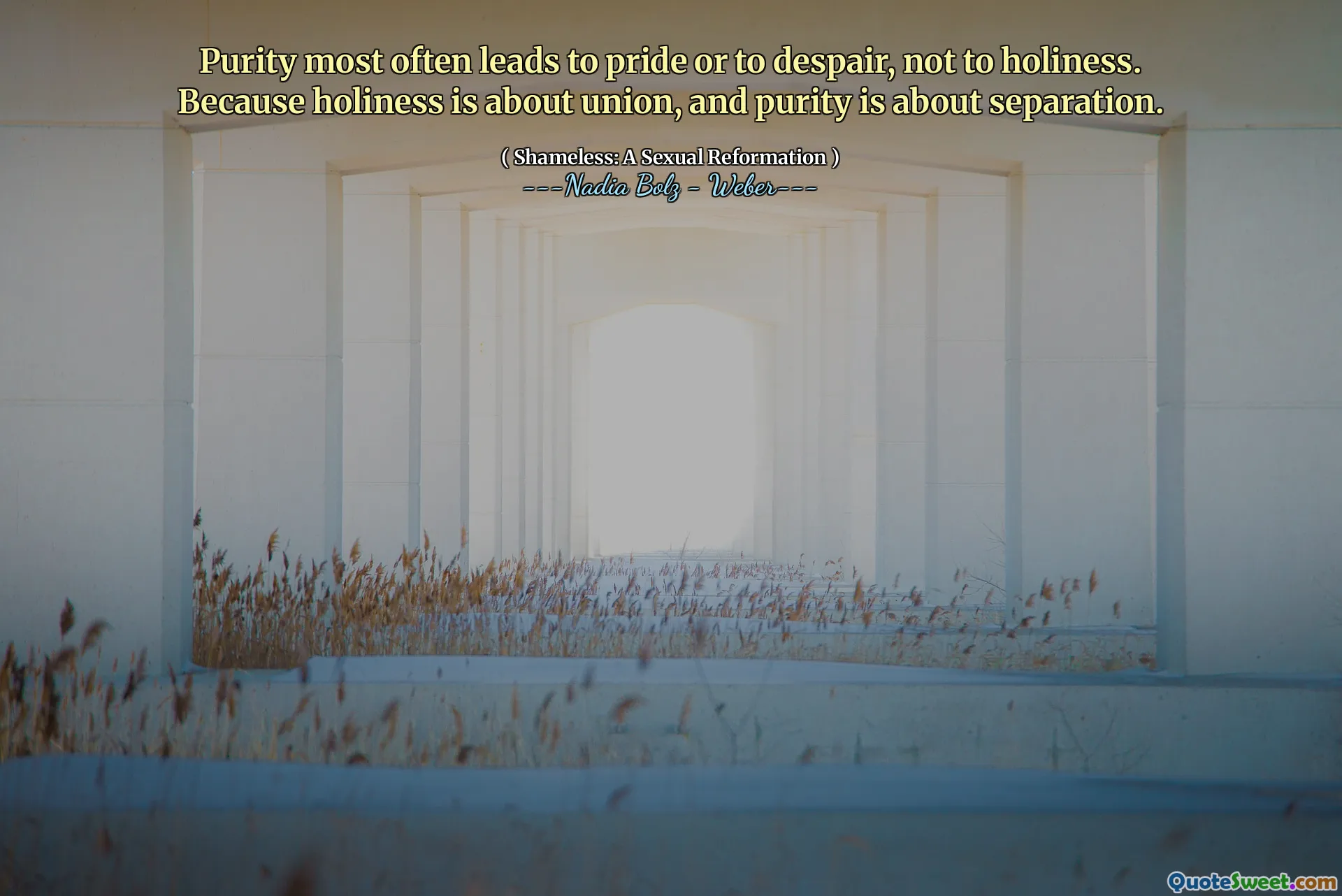
Purity most often leads to pride or to despair, not to holiness. Because holiness is about union, and purity is about separation.
This quote from Nadia Bolz-Weber underscores a profound distinction between two concepts often intertwined in spiritual discourse: purity and holiness. Purity is frequently associated with separation—setting oneself apart from worldly impurities, sins, or the other perceived as unclean. While this emphasis on purity aims for moral or spiritual cleanliness, it can inadvertently foster a sense of superiority or self-righteousness, leading individuals to pride. Alternatively, if purity feels impossible to attain, it may result in despair, as the gap between the ideal and reality becomes a source of guilt and hopelessness. In contrast, holiness is depicted here as about union—a connection that transcends mere outward cleanliness or moral performance. It involves an intentional communion with the divine, with others, and with one's inner self. This perspective shifts the focus from avoiding impurity to embracing unity and community, suggesting that true spiritual fulfillment arises not from separation but from connectedness. When individuals seek holiness, they are encouraged to foster relationships, cultivate compassion, and partake in shared human experiences, recognizing that divine presence manifests through unity rather than segregation. This distinction challenges us to reconsider our spiritual priorities: Are we striving to simply be 'pure' in appearance, or are we pursuing a genuine union that reflects divine love? The quote invites reflection on how our understanding of purity and holiness influences our actions and relationships, urging a move away from a paternalistic or prideful approach toward an openness rooted in connection and humility.
In the context of the book '( Shameless: A Sexual Reformation )', this insight encourages a reevaluation of how moral standards and spiritual pursuits shape our identities and communities. It highlights that true holiness involves vulnerability and union, fostering a more authentic and inclusive spiritual journey rather than one marked by shame, superiority, or despair.







